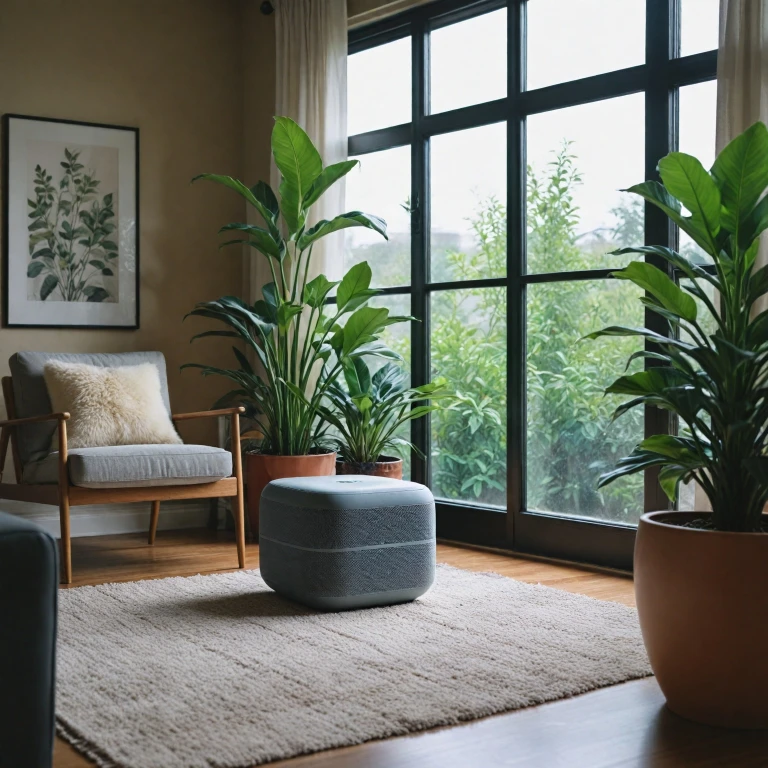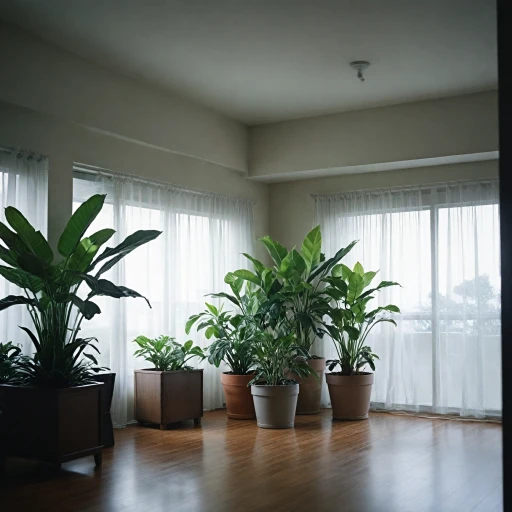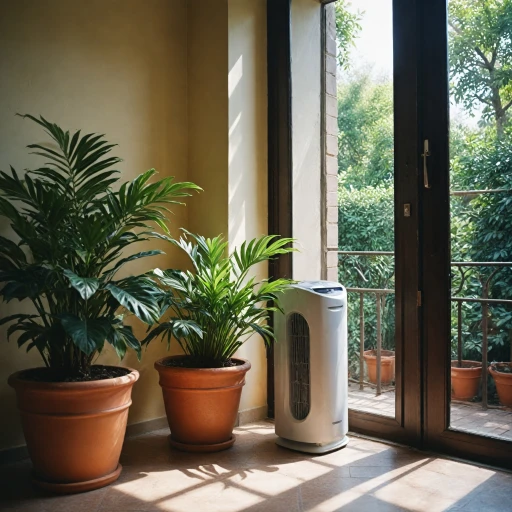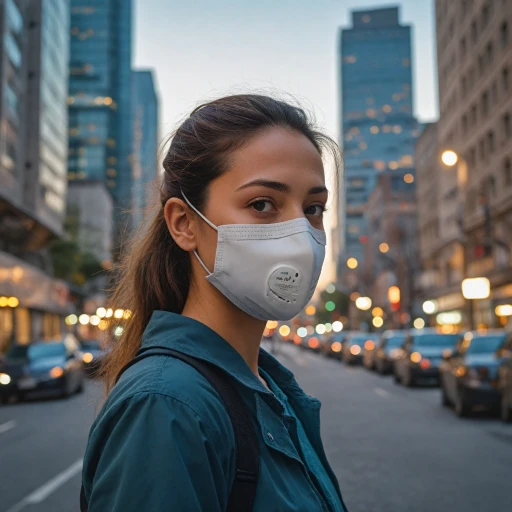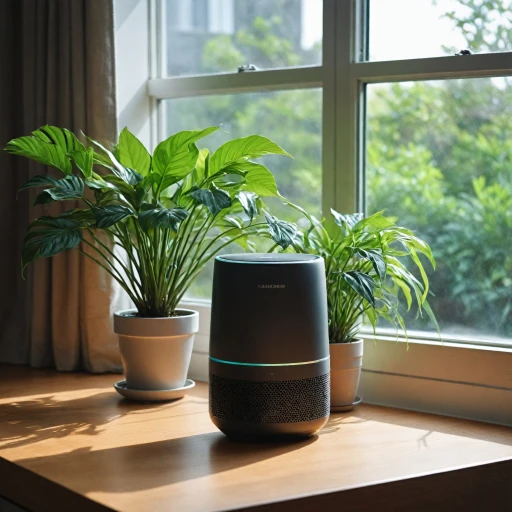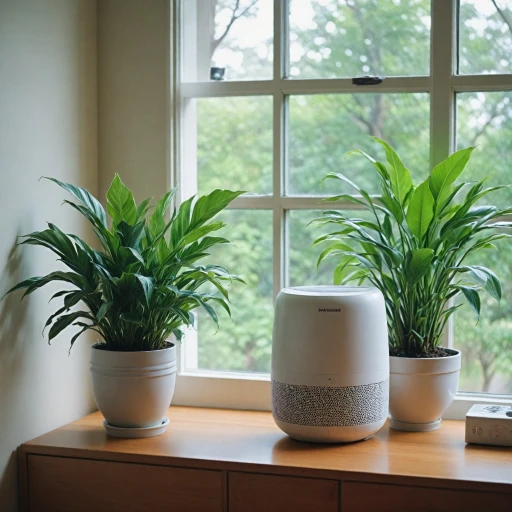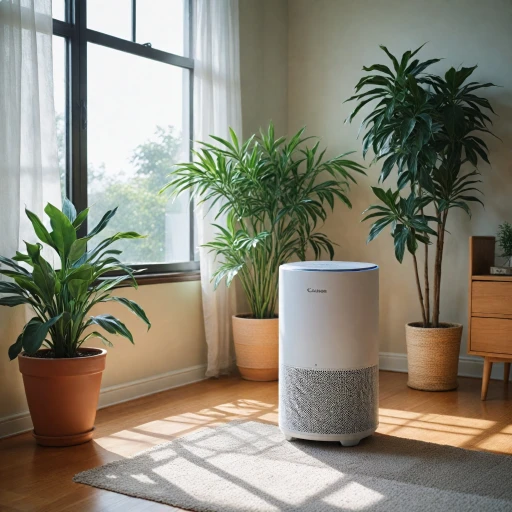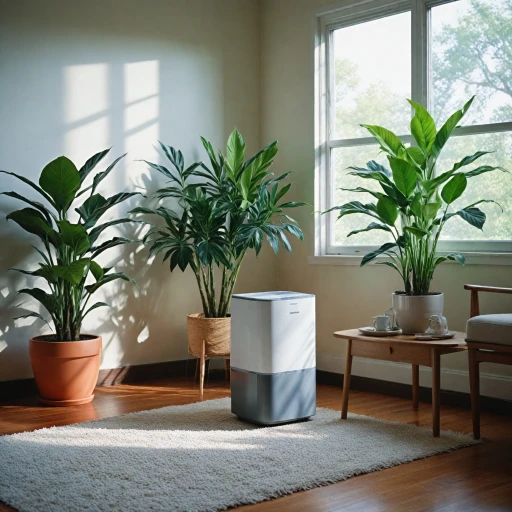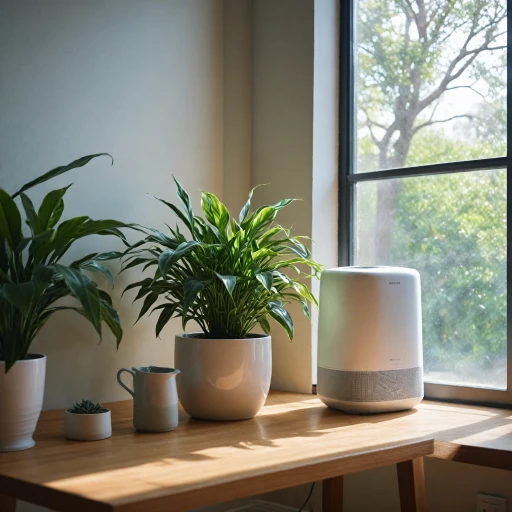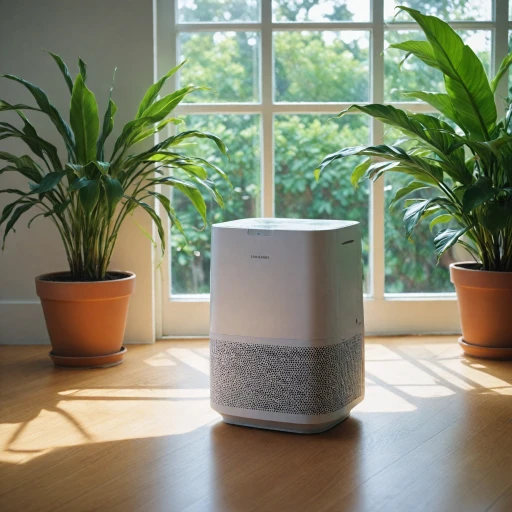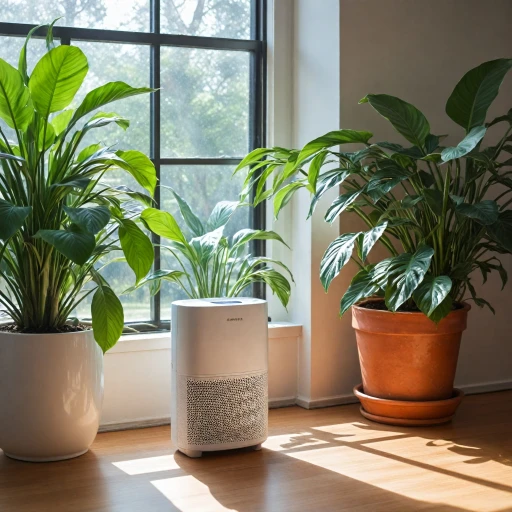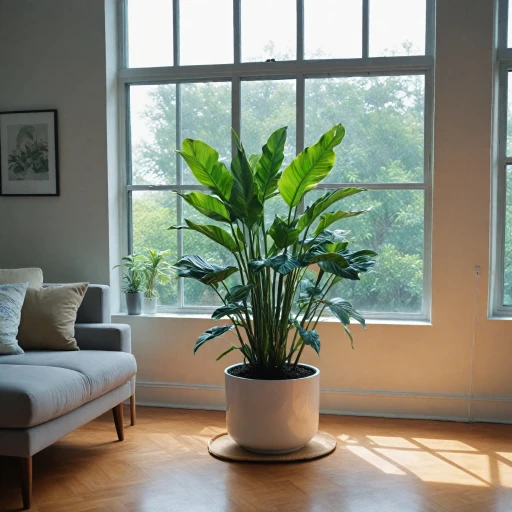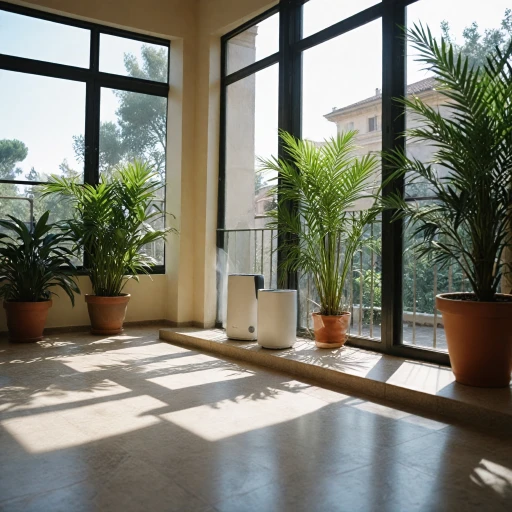
Understanding Portable Air Cleaners
Introduction to Portable Air Cleaners
Portable air cleaners, commonly referred to as portable air purifiers, are small, often movable devices designed to improve indoor air quality by filtering out various airborne pollutants. These units are versatile and can be easily transported from room to room, providing a practical solution for those who do not wish to invest in a complex HVAC system. The main objective of these air cleaners is to remove harmful particles such as dust, pollen, pet dander, and other allergens from the air. They achieve this through different types of filtration systems, primarily HEPA (High-Efficiency Particulate Air) and carbon filters, which are key in capturing microscopic particles and reducing indoor pollution levels.Features and Varieties
Portable air purifiers offer a range of features that can cater to diverse needs and budgets. While some come equipped with advanced HEPA carbon filters, others may provide simpler solutions like a basic box fan filtration system. The unit's efficiency in filtering air is determined by its fan speed and filtration capabilities, which directly influence the air quality in your home. Another important consideration is the price point. Portable air cleaners vary in cost, often reflecting their capacity and add-ons. Some may lean towards those with price sale or even offers of free shipping, making them more accessible. Understanding the overall unit price helps in determining the product's value compared to the air quality improvements it offers.Where to Use Portable Air Cleaners
These air purifiers can be particularly beneficial in rooms with high levels of dust and allergens. A free-standing unit can be an excellent choice for smaller spaces or individual rooms, providing a targeted approach to cleaner air. Larger spaces may require more than one device for optimal air purification. Portability enhances their appeal further, allowing users to adjust the device's positioning according to their specific air quality needs. Whether in a living room or a kitchen, portable air cleaners redefine convenience by offering cleaner, healthier breathing spaces without the complexity of fixed installations. For in-depth insights on different types of air cleaning solutions, you can explore the ideal USB car air freshener for your needs.Key Features to Consider
Essential Factors to Evaluate When Choosing an Air Purifier
When searching for the perfect portable air cleaner, understanding the key features is crucial. Finding a unit that aligns with your needs involves considering several components that directly affect its efficiency, performance, and overall value.- HEPA and True HEPA Filters: One of the most important features to look for is a HEPA filter, preferably a true HEPA filter, known for trapping 99.97% of airborne particles as small as 0.3 microns. This is essential for removing indoor air pollutants such as pet dander, pollen, and dust.
- Activated Carbon Filters: To reduce odors and VOCs in your home, consider models with an activated carbon filter. This type of filtration helps to absorb and neutralize unwanted scents, improving the overall air quality.
- Room Size Compatibility: Make sure the air cleaner you choose is designed for the specific room size you intend to use it in. An undersized unit may not provide sufficient filtration for larger spaces.
- Fan Speed Settings: Adjustable fan speeds can be beneficial, allowing you to control the airflow and noise level depending on the situation. This is particularly useful for high-traffic areas or bedrooms where quieter operation is necessary.
- Portable Design: A compact, lightweight design ensures that the air purifier can be moved easily from room to room, providing flexibility in managing air quality throughout your home.
- Energy Efficiency: Assessing the unit's energy consumption is important for sustainable operation over time. Energy-efficient models can help you save on electricity bills.
- Unit Price and Shipping Considerations: The cost of air purifiers can vary significantly based on the features and brand. Carefully compare regular prices and sale prices to ensure you're getting good value. Additionally, factor in free shipping offers which can reduce your overall expenses.
Health Benefits of Cleaner Air
The Health Impact of Clean Air
In recent years, the focus on indoor air quality has intensified, with portable air cleaners being heralded as a reliable solution to improve the air we breathe. Incorporating high-efficiency particulate air (HEPA) filters, these devices address both visible and microscopic pollutants, significantly enhancing indoor air conditions. Breathing cleaner air has various health benefits that everyone in a household can enjoy. Here’s what you should know:- Reduction of Allergens: Air purifiers equipped with HEPA filters effectively capture particles such as pet dander, pollen, and dust mites, reducing allergen presence in your living spaces. This can bring relief to individuals suffering from allergies.
- Minimizing Respiratory Issues: By removing harmful particles like mold spores and certain bacteria, air purifiers can help mitigate some respiratory issues, promoting easier breathing for those with asthma or sensitivity to air quality.
- Decreasing VOC Levels: Volatile Organic Compounds (VOCs) from household products can contribute to indoor air pollution. Models with activated carbon filtration can effectively reduce such contaminants, enhancing overall air quality.
- Mitigating Smoke and Odor: For those concerned about smoke or lingering odors, the combination of HEPA and carbon filters can be particularly effective, trapping tobacco smoke and cooking smells, providing a fresher atmosphere.
Comparing Different Models
Comparing Models: Finding the Best Fit for Your Needs
Choosing the right portable air cleaner can be a daunting task, given the multitude of options available. To make an informed decision, it’s essential to compare different models based on a few key parameters. This will help you find a unit that promises high performance and good value for its price.- Filtration Technology and Air Quality: Most high-quality air purifiers use a HEPA filter, which is effective in capturing up to 99.97% of particles as small as 0.3 microns. Additionally, some models include an activated carbon filter to remove odors and volatile organic compounds, making the air cleaner for indoor spaces.
- Size and Power: Consider the size of the room you intend to use the air cleaner in. Larger rooms require units with a powerful fan to circulate the air effectively. On the other hand, smaller rooms can benefit from a more compact unit, often at a sale price, that still offers excellent air filtration quality.
- Noise Level: Some units can be as quiet as a box fan on low speed. This feature is crucial for those looking to maintain a serene home environment without the constant hum of a fan.
- Features and Convenience: Options such as free shipping, adjustable fan speeds, and portable designs can enhance the overall user experience. Additionally, some models offer a digital display to monitor indoor air quality, making it easier to see the impact of the purifier.
- Cost Considerations: Prices for portable air purifiers vary widely. While some affordable units come with a regular price tag, others with advanced features might command a higher unit price. It’s important to weigh the cost against the benefits each air cleaner offers.
Maintenance and Care Tips
Ensuring Longevity and Efficiency
Maintaining your portable air cleaner is crucial for ensuring it operates efficiently and lasts longer. Regular maintenance not only helps in preserving the air quality in your room but also ensures that the unit functions at its best, providing you with cleaner indoor air. Here are some essential tips to keep your air purifier in top shape:
- Regular Filter Replacement: The heart of any air purifier is its filters. Whether it’s a HEPA filter or an activated carbon filter, replacing them regularly is key. Most manufacturers recommend changing the HEPA filter every 6 to 12 months, depending on usage and air quality. Activated carbon filters may need more frequent changes if you have pets or smoke indoors.
- Cleaning the Unit: Dust and particles can accumulate on the exterior and interior of the unit. Wipe down the outside with a damp cloth regularly and ensure that the air intake and outlet are free from obstructions. Some units allow you to vacuum the pre-filter to extend its life.
- Monitor Air Quality: Many modern air purifiers come with air quality indicators. Keep an eye on these to understand when your unit is working harder than usual, which might indicate it’s time for a filter change or a thorough cleaning.
- Check the Fan: The fan is a critical component of your air cleaner. Ensure it’s running smoothly and quietly. If you notice any unusual noises, it might be time to consult the manufacturer or a professional for maintenance.
- Use in Appropriate Room Size: Ensure that your air purifier is suitable for the room size. Using a unit designed for a smaller space in a larger room can overwork the purifier, reducing its lifespan.
By following these maintenance tips, you can ensure that your portable air cleaner remains effective and efficient, providing you with high-quality indoor air for years to come. Remember, a well-maintained air purifier not only improves air quality but also offers better value for its price.
Cost and Value Considerations
Weighing the Cost vs Value
When considering a portable air purifier, it's essential to evaluate the unit price and how it aligns with your needs and budget. There's a broad range of prices available, from economical options to more premium units, each promising to improve your indoor air quality.
While the regular price tags might sway your decision initially, always keep an eye out for a price sale, especially around key shopping periods. Some brands offer free shipping, which can further enhance the value proposition of your purchase.
The quality of an air purifier is often tied to its filtration system. A true HEPA filter, for instance, is typically more expensive than a standard filter, but its ability to capture smaller particles like pet dander and allergens might justify the cost if you have specific air cleaning needs.
When assessing cost, also consider the presence of additional features, such as activated carbon filters which help in neutralizing odors and certain gases, and whether the fan and filtration settings are adjustable to maximize the room coverage.
- HEPA Filter Efficiency: Higher priced HEPA and HEPA carbon purifiers often offer superior particle removal.
- Room Size Compatibility: Choose a unit that can efficiently cover your indoor space.
- Maintenance Requirements: Consider ongoing costs such as replacing filters regularly.
- Energy Consumption: Factor in the running cost of the fan and other components.
The real value of a portable air purifier lies not just in the initial unit price but also in the long-term improvement of your air cleaner's settings and the overall air quality it provides. Weigh these factors carefully to ensure your purchase meets your needs efficiently.

